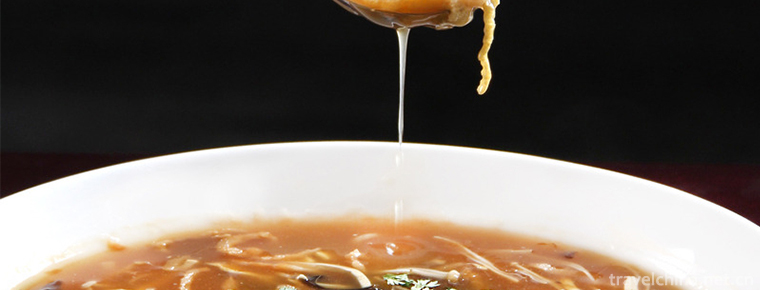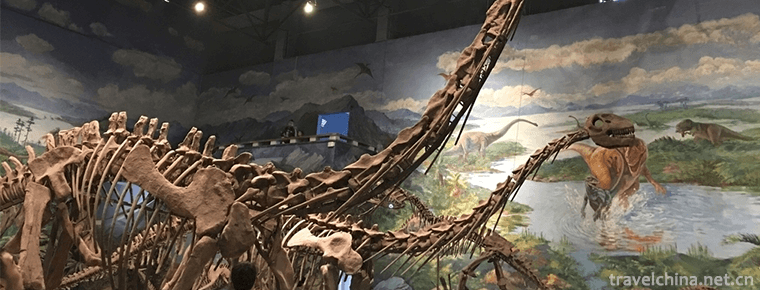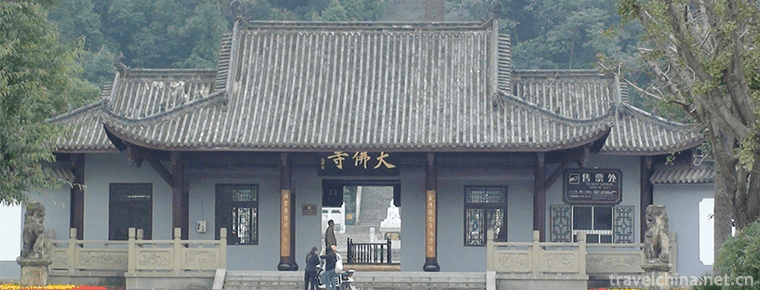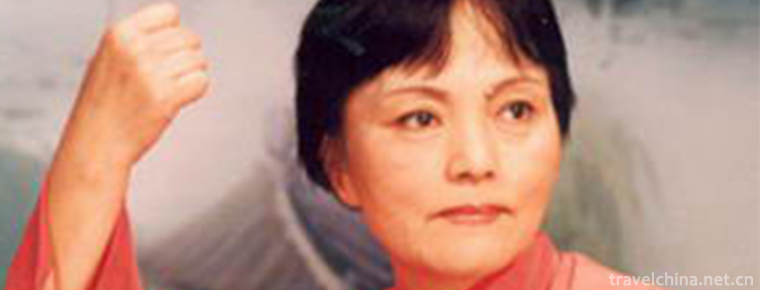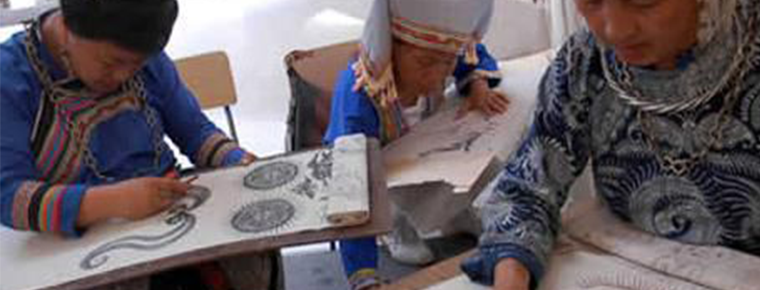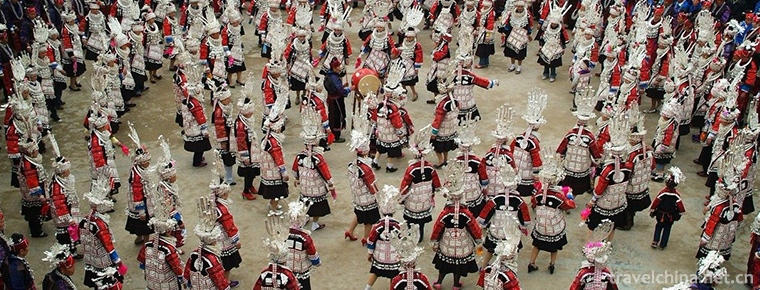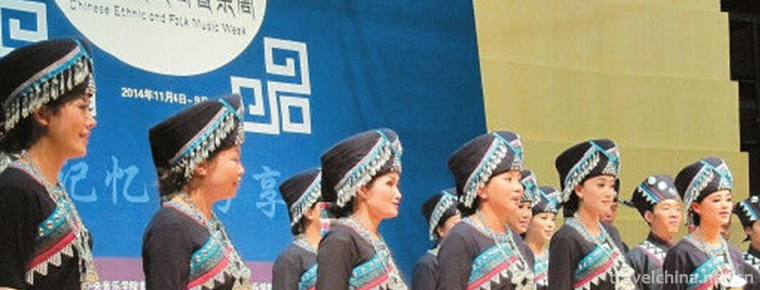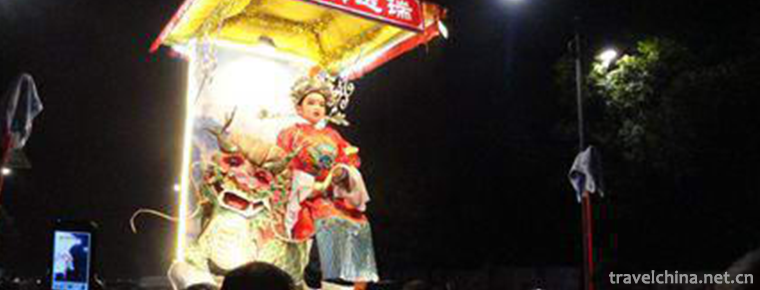Daur Uqin
Daur Uqin
Daur Uqin, also known as "Wuchun", is a form of Daur folk art storytelling. It forms and prevails in Meilis Daur, Fulaerji, Fuyu and Longjiang counties of Qiqihar City, Heilongjiang Province, Molida Daur Autonomous Banner, Hulunbeier City, Xiguitu Banner and Tacheng area of Xinjiang Uygur nationality. One person talks and sings, mainly singing, singing by himself. There are many themes, such as heroic epics, love stories, fables and so on. Those with short repertoire only sing for a few minutes, while those with long repertoire can sing for several days and nights. Melodies are specially designed for multiple monographs. Usually a song to the end. Traditional repertoires include "Shao Lang and Dai Fu", "Rabbit begging for mercy", "Arision" and so on.
On May 20, 2006, the "Daur Uqin" declared by the Molidawa Daur Autonomous Banner of Inner Mongolia Autonomous Region was listed in the first batch of national intangible cultural heritage list with the approval of the State Council.
The serial number is 277V-41.
historical origin
Uqin is a folk chanting rhythmic poem created by Daur people. It is divided into oral Uqin and literati (written) Uqin. Wu Qin is rich in internal subjects and has a wide range of subjects, with unique national characteristics and artistic features. It is a portrayal of the Daur people's production and life, and also the essence of the Daur literature and art works.
In the long process of historical development, the Daur people not only made outstanding contributions to defending the motherland and building the frontier, but also contributed to the prosperity of the motherland's cultural and artistic treasure house and their own strength. Historically, the Daur people have created a wealth of literary and artistic works, including myths, legends, folk stories, poetry, proverbs, riddles, compliments, folk songs, folk dance lyrics and other folk literary and artistic works. As a kind of chanting rhythmic poem circulated among Daur people, Wuqin is one of the representative varieties of Daur literature and art works.
Wuqin, also known as "Wuchun" and "Dangchun", borrows from Manchu and originally means "song". The Manchu people call the folk songs retained in the past dynasties "Uqin". For example, they call Shaman songs "Enduliuqin", "Wollaliuqin" and "Handu Uqin" as the form of folk song and dance. Daur people borrowed the word "Uqin" to refer to folk recitation rhythmic poems handed down from dynasties to dynasties.
Area of circulation
Daur Uqin, also known as "Wuchun", is a form of Daur folk art storytelling. It forms and prevails in Meilis Daur, Fulaerji, Fuyu and Longjiang counties of Qiqihar City, Heilongjiang Province, Molida Daur Autonomous Banner of Inner Mongolia Autonomous Region, Hulunbeier League, Xiguitu Banner and Tacheng area of Xinjiang Uygur nationality.
artistic characteristics
Form of performance
Wu Qinben was a narrative poem composed by Daur literati in Manchu and read aloud in intonation during the Qing Dynasty. Later, the folk artists performed rap and singing.
These works gradually evolved into a variety of folk art with the meaning of "story singing or story telling". Uqin's initial performances were mostly bare-mouthed singing. Later, the artists used "Huachangsi" (four-string piano) to sing by themselves. In addition to the original recitation tunes, narrative tunes and minor tunes are also used to perform. Wuqin's programs are rich in content, including stories about Morgan, a national hero, love and marriage, scenery of his hometown, myths, fairy tales and legends. Among these programs, stories reflecting the historical achievements of the national hero Morgan, the epic character of Shaolang and Daifu, and stories adapted from the Han classic Romance of the Three Kingdoms and the Water Margin are most popular among the Daur people. The capacity of the program varies from several days and nights for the elderly to minutes and hours for the short.
Traditional Uqin performances are mostly held during the festivals and auspicious celebrations. The audience gathers in the Kangtou of the Minjia, sitting cross-legged and listening to the artists. Since the founding of the People's Republic of China, there have been a large number of works singing new life and new era, such as "Singing Hero Huang Jiguang", "Motherland Mother", "Beijing Song", "The Origin of an Iron Barrel" and "Since I Meet Chairman Mao" compiled and performed by the late famous Uchin artist He Rigetu.
Art classification
The content of Uqin, created by the Daur people, is based on the historical, economic and cultural life of the Daur people. Therefore, the theme of Uqin is more extensive and the content is quite rich, which reflects the history and life of the Daur people in a more comprehensive way. Judging from the existing works, Uchin can be divided into the following categories:
Uchin, reflecting the history of the Daur people:
This kind of Uqin is drawn from some aspects of Daur people's historical life. It not only has high literary and artistic value, but also has certain historical value. It is a valuable material for people to study Daur literature and history.
In the Qing Dynasty, many Daur people were placed in eight banners and armoured on duty. They were stationed in Ouhun, Qiqihar, Yinergen, Hulan, Hulunbeir, Yili and other places, bearing extremely heavy military obligations. With the intensification of class and national contradictions in the Qing Dynasty, the struggle against the Qing Dynasty surged. Many officers and soldiers of the Daur nationality were withered to the interior or or frontier by the Qing government to suppress the anti-Qing struggle in all parts of the country. These officers and soldiers of the Daur nationality have been fighting abroad all the year round, and their footprints of transition are almost all over the country, even as far as Xinjiang, Yunnan, Taiwan and other places, while their "survivors are less than ten". The war left a deep disaster for the Daur people. The works of Uqin, such as "In Barracks", "Soldier in Gansu Province", "Patrol Poems", reflected the military life and hard experience of the Daur people in the Qing Dynasty.
In 1914, Shao Lang and Dai Fu of Dian Ri Teng Hara led the Daur peasants to launch an uprising in order to resist the oppression and exploitation of the landlord class. They attacked the landlord's compound, seized guns and horses, strengthened the uprising team, opened the granary to relieve the poor people, and launched the uprising banner of "anti-warlords, killing heroes and rescuing the poor". Rapid development and growth. The rebellion team defeated the officers and troops many times, but eventually they failed because they were outnumbered by others. Shao Lang and Dai Fu were captured by the officers and soldiers and bravely took up the revolt. Although the uprising failed, Shaolang and Daifu's courageous spirit of resistance was admired by later generations. People tried to recite their heroic deeds and produced the famous Uchin work Shaolang and Daifu.
Uqin, reflecting love and marriageable life:
Love and marriage are eternal themes in literary and artistic works. This is fully reflected in Uqin's works. Ao Luxing, a prominent patriotic poet of Daur nationality, wrote "Miserable Acacia" which is a well-known love wave: "Pure and honest white crane, always yearning for the place of birth, carefully thinking about it is more like me, the lover is always the same." The author expresses the author's yearning for pure and beautiful love and emotional specificity by chanting things and holding aspirations by pure white crane. "Five-color Flowers" is also a typical love poem: "Everyone loves five-color flowers. They are beautiful and beautiful in color. You are more beautiful than flowers when you meet each other on the street. Southern scholar is admirable. You are more amazing than them when you are looking for you everywhere. The author compares the lover in her mind to a graceful five-color flower, and praises her beauty in appearance. At the same time, the author highly praises the morality and talent of his lover, and believes that even the learned and talented Southern scholar can not be compared with it. In this poem, the author expresses his love and praise for his lover in simple and unadorned language, which embodies the beautiful mood of love life.
Wuqin reflecting customs and customs
In the long river of human history, due to the difference of natural environment and historical development track, the customs and habits of different nationalities have their own characteristics, which show great differences in marriage and funeral, ceremony and festival, diet and residence, religious beliefs and so on. Among the Daur people, there are many Uqin describing customs and customs, such as "Spring Festival", "New Year's Pictures", "Marriage Songs" and so on. Wuqin's "Spring Festival" wrote: "New peaches change old charms, old years change into new years, time like running water, firecrackers ring in the sky... Happy festival, kowtow to the elders, everything is auspicious. Go to the door and congratulate the neighbours. Invite all brothers to sit around the table, wine and delicacies are ready, and Uchin is resounding all over the sky. Good poets can compose new poems. They are full of baskets of poems, dancing and singing. Daur people call the Spring Festival "Agne". This poem is a poem describing the time when the Daur people passed "Agne". During the festival, families not only set off firecrackers to celebrate the New Year, but also create new poems to greet the old and the new. This is an important feature of Daur people's Festival customs. At the same time, this Uqin not only describes the festival customs of the Daur people, but also reflects the Daur people's love for Uqin.
Uqin reflecting moral education
Wuqin, such as "Learning Culture", "Quieting Sprinkling Songs", "Quieting Lust", "Quieting Qi", "Not Greedy for Wealth", "Ten Graces", etc., reflects some strange stories about civil industry in Qin's historical prose, which are quite common in Guoyu and Zuozhuan, but few independent authors have written such books as "Shuwang Benji" until the Han Dynasty. The influence of miscellaneous biographical stories of the Han Dynasty on future generations can not be ignored. On the basis of the Han and Wei Dynasties, the future generations of miscellaneous biographies and bizarre stories continued to develop. Its writing style often follows the Han Dynasty and realizes some historical figures with illusory stories. Among them, the outstanding achievements are the history of the Song Dynasty, "Wu Wang Fa Yi Ping Hua" and the eventual development of the Ming Dynasty, become the highest representative of the ancient miscellaneous history of China's miscellaneous biographical and bizarre novel "Fengshen Romance".
Wuqin, with its distinctive national style and regional cultural characteristics, has always been popular with the Daur people. However, in the new historical period, its survival and development are facing serious challenges and are in an endangered state. It is necessary to take appropriate measures to support and protect it.
Inheritance significance
The state attaches great importance to the protection of intangible cultural heritage. On May 20, 2006, the opera was approved by the State Council and listed in the first batch of national intangible cultural heritage list.
With the rapid development of economy, the art of "Uqin" which has been circulating among the Daur people for a long time has reached the danger of being lost and no one to follow, and it is too late to rescue. Therefore, first of all, we should strengthen the protection of the representative inheritors of "Uqin" and provide practical conditions to ensure the inheritance of "Uqin" masters and apprentices, which is the basic requirement of Daur "Uqin" as intangible cultural heritage. Therefore, we should protect the "Uqin" artists. Wuqin artists are made up of three parts: folk artists, amateur old artists and amateur new artists. They are newly developed young people.
Secondly, besides oral inheritance, Wuqin should continue to improve its relaxed living environment. It should vigorously train minority literary and artistic talents in Institutions of higher learning, cultural centers and literary and artistic groups. In addition, it should also provide a stage for its performance, only in the continuous singing of the "Uqin" cultural ecology can really be established. Of course, the development of "Uqin" needs to further improve singing skills. To create excellent repertoire, the most crucial thing is to train a large number of outstanding literary and artistic talents to spread and develop "Uqin" culture.
As one of the treasures of Daur's traditional culture, "Uqin" is a regret of the national traditional culture that abortion is about to occur in the economic tide of the new era. It is the responsibility of our new generation to carry forward the traditional art left by our great ancestors. Strengthen propaganda efforts, in the absence of written reality, using the way of Uqin rap and singing to spread the precious spiritual wealth left by our ancestors through oral rap and singing, only in this way can we be worthy of our nation, our ancestors and the prospects of human development.

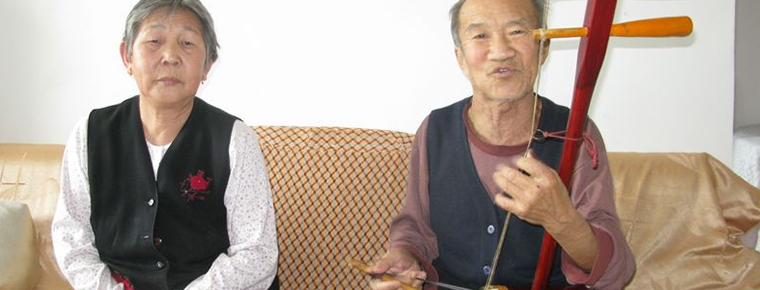
-
Free and unfettered hu hot soup
The authentic Xiaoyao Town Hu Hot Soup, produced in Xiaoyao Town, Xihua County, Zhoukou City, Henan Province, is a famous snack in China.
Views: 277 Time 2018-11-26 -
Guanlan Mountain and Water Pastoral
Shenzhen Guanlan Mountain and Water Pastoral Tourist Park covers an area of 300,000 square meters. It is located in Guanlan Street, Longhua District. It integrates food, housing, hot springs.
Views: 123 Time 2019-01-13 -
Zigong Dinosaur Museum
Zigong Dinosaur Museum is located in the northeast of Zigong City, Sichuan Province, 11 kilometers from the city center. It is a large site museum built on the world famous "Dashanpu Dinosaur Fos.
Views: 224 Time 2019-03-22 -
Big Buddha Cultural Tourist Area in Zigong Rong County
The Dafo Cultural Tourist Area of Zigong Rong County was opened to the outside world in 1982. It covers an area of 32,470 square meters and has a building area of 3,403 square meters. There are a wide.
Views: 198 Time 2019-03-22 -
Danzhou tune
Danzhou tune is a traditional folk song which only spreads in Danzhou of Hainan Province and has a unique regional style. It is sung in Danzhou dialect with a lively rhythm.
Views: 116 Time 2019-04-25 -
Hangzhou Reviews
Hangzhou Ci Commentary, commonly known as Xiaoshu, is the traditional art of rap and singing in Hangzhou, Zhejiang Province. It is a kind of folk art that tells stories.
Views: 189 Time 2019-05-02 -
Batik art
Miao batik technology, the traditional handicraft of Danzhai County, Guizhou Province, is one of the national intangible cultural heritage..
Views: 111 Time 2019-05-10 -
Miao Sister Festival
Miao Sister Festival, also known as "Sister Rice Festival", is a traditional festival of Miao people in Laotun and Shidong areas of Taijiang County, Guizhou Province. It is held from March 1.
Views: 116 Time 2019-06-05 -
Poop love song
In February 2006, a cultural census unexpectedly found "Poya Ge Shu" in Poya Village. Through expert research, 81 patterns in "Poya Ge Shu" have the character of words, and are one.
Views: 211 Time 2019-06-09 -
Raise the Pavilion
Lifting the pavilion, also known as the pavilion, is a unique traditional folk dance that integrates historical stories, myths and legends, and integrates painting, opera, tie-up, paper sculpture, acr.
Views: 138 Time 2019-06-18 -
Chuanxindian earthquake site
Compared with Beichuan earthquake site, Yingxiu earthquake site and Hanwang town earthquake site, chuanxindian earthquake site in Shifang has unique advantages. It can fully reflect the great spirit of earthquake relief and has great protection and construction value..
Views: 101 Time 2020-11-05 -
History of Nanchong
In the Northern Song Dynasty (960-1127), there were three states in the territory, which governed 13 counties, such as Nanchong (prefecture), Xichong and Xiangru, which were subordinate to Chengdu Fulu..
Views: 166 Time 2020-12-17
